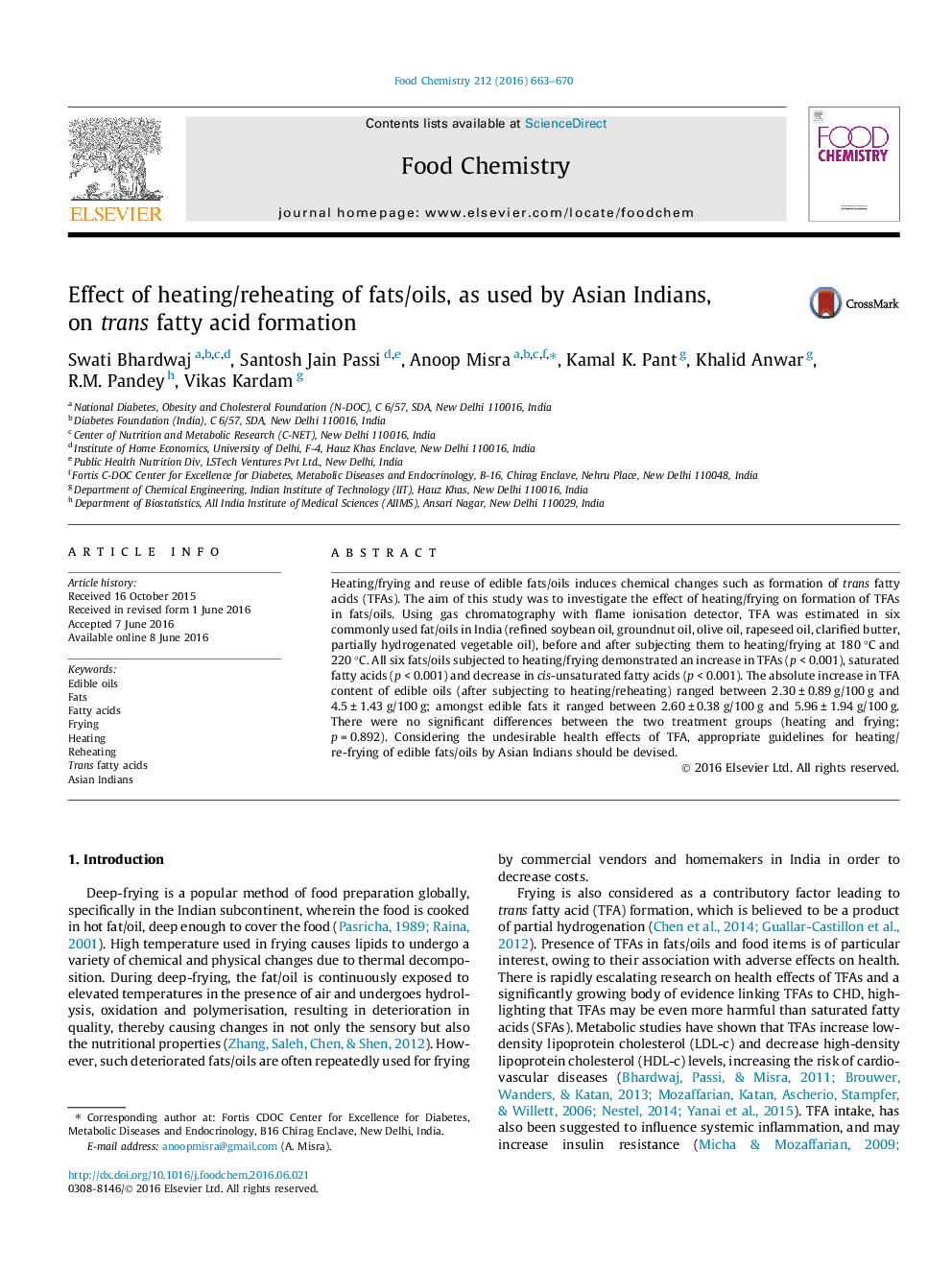| Article ID | Journal | Published Year | Pages | File Type |
|---|---|---|---|---|
| 1185088 | Food Chemistry | 2016 | 8 Pages |
•Formation of trans fatty acids (TFA) occurs during frying/heating of fats/oil.•TFAs were estimated in 6 fats/oils before/after heating/frying at 180 °C and 220 °C.•Heating/frying led to formation and increase in TFA in all fat/oil samples.•Heating/frying also increased the saturated fatty acids and decreased cis-unsaturated fatty acids.•Guidelines for heating/re-frying of fats/oils by Asian Indians should be devised.
Heating/frying and reuse of edible fats/oils induces chemical changes such as formation of trans fatty acids (TFAs). The aim of this study was to investigate the effect of heating/frying on formation of TFAs in fats/oils. Using gas chromatography with flame ionisation detector, TFA was estimated in six commonly used fat/oils in India (refined soybean oil, groundnut oil, olive oil, rapeseed oil, clarified butter, partially hydrogenated vegetable oil), before and after subjecting them to heating/frying at 180 °C and 220 °C. All six fats/oils subjected to heating/frying demonstrated an increase in TFAs (p < 0.001), saturated fatty acids (p < 0.001) and decrease in cis-unsaturated fatty acids (p < 0.001). The absolute increase in TFA content of edible oils (after subjecting to heating/reheating) ranged between 2.30 ± 0.89 g/100 g and 4.5 ± 1.43 g/100 g; amongst edible fats it ranged between 2.60 ± 0.38 g/100 g and 5.96 ± 1.94 g/100 g. There were no significant differences between the two treatment groups (heating and frying; p = 0.892). Considering the undesirable health effects of TFA, appropriate guidelines for heating/re-frying of edible fats/oils by Asian Indians should be devised.
